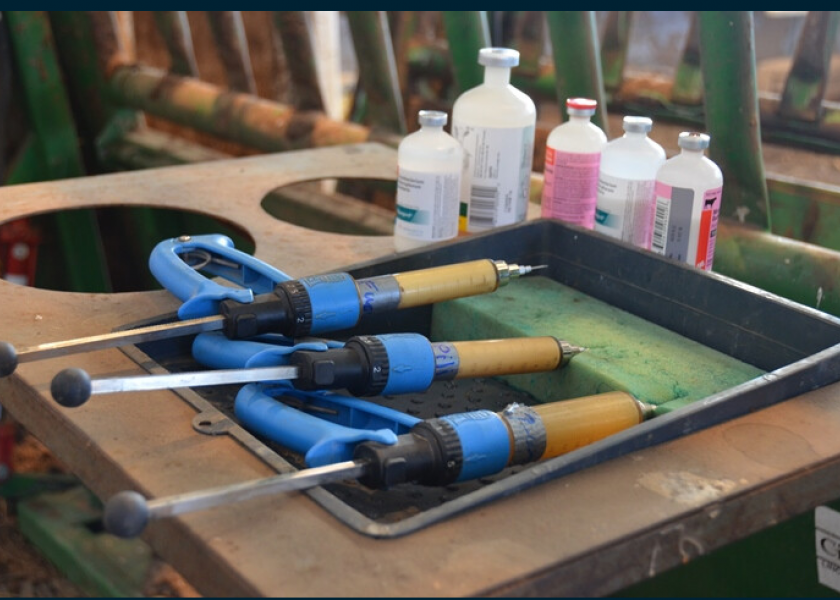Vaccine Handling and Storage

The highest quality vaccine that producers purchase may be of little value if not handled and stored properly. Even experienced producers may overlook key principles when preparing and administering vaccines and other animal health products. Product storage and handling is important to ensure that the efficacy of the products is not compromised.
Modified live vaccines must be reconstituted with a sterile diluent prior to administration. It is generally recommended that these products be used within an hour of reconstitution. The products are routinely used with a good response when administered and handled according to label directions.
The processing speed in a stocker operation is often considerably faster than a cow/calf operation. Cow/calf processing facilities are often in area that are not well sheltered from the weather. This stresses the need to exercise caution when handling and administering modified live products. Common handling techniques can render MLV products ineffective and even reduce the effectiveness of killed vaccines and other products.
It is always a good practice to purchase vaccines from a reputable distributor. A vaccine will have less than normal effectiveness if it has ever been stored improperly. Improper storage includes freezing, and/or exposure to heat or sunlight. Maintaining a high level of efficacy is critical to establishing immunity in a majority of vaccinated cattle.
Vaccines should be stored in a dependable refrigerator that maintains a temperature (typically 35-45⁰ F) as directed by the product label. Chute side vaccine coolers work well for holding the vaccines during processing. These coolers have slots for holding syringes after they are loaded, and vaccines are placed inside the cooler to maintain temperature. Vaccine coolers can be purchased ready to put to use, or can easily be constructed by converting small coolers to this intended purpose. Instructions for constructing an inexpensive vaccine cooler are available by clicking the “Chute Side Vaccine Cooler” link on the beefextension.okstate.edu website.
It is also important to maintain a record of lot/serial numbers of products in the event of a recall or other situations that may arise. A quick and easy method of recording the lot and serial numbers while working cattle is to simply to take a photo of the information on the vial label with a cell phone camera. It can be transferred later to more permanent records. Products that are out of date should be properly discarded. Through proper record keeping, storage and handling, animal health products will be an effective piece of a comprehensive cattle health program.
Dr. John Gilliam, Clinical Associate Professor for Food Animal with the College of Veterinary Medicine at Oklahoma State University, discusses herd heath and vaccination. This webinar is part of the Thursday Rancher's Series and was presented on Sept. 17, 2020. OSU Extension: Herd Health and Vaccinations - YouTube







